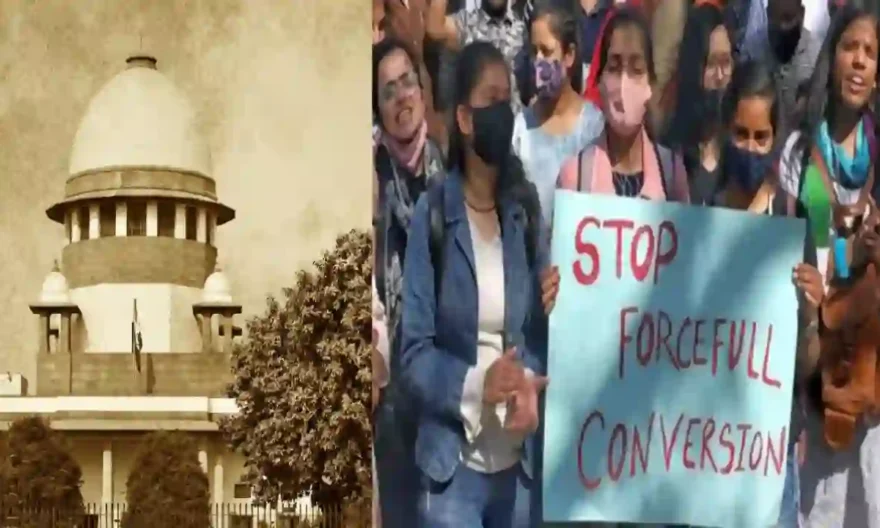
The Supreme court will hear on January 9 a PIL by BJP leader and Advocates Ashwini Kumar Upadhyay seeking a direction to the Centre and states to take measures to check forcible and fraudulent religious conversion by threat and inducements.
On December 9, the Former member of the Planning Commission Dr. Syeda Hameed has filed an application in Supreme Court Seeking Intervention In The “Forceful Conversion’ Case pending before the Court.
On December 3, The Gujarat Government had filed and an affidavit in supreme court supporting the demand for a strict law on forceful religious conversions in the country.
Home Department of Government of Gujarat in its affidavit said that the right to freedom of religion does not include a fundamental right to convert other people to a particular religion.“The said right (to freedom of religion) certainly does not include the right to convert an individual through fraud, deception, coercion, allurement or other such means,it added
The meaning and purport of the word ‘propagate’ falling under Article 25 of the Constitution was discussed and debated in great detail in the constituent assembly and the inclusion of the said word was passed by the constituent assembly only after the clarification that the fundamental right under Article 25 would not include the right to convert,Home Department, Government of Gujarat said
During the last hearing, the bench of Supreme Court, comprising of Justices MR Shah and CT Ravikumar directed the Centre to file a detailed affidavit on the issue after discovering information from states. Maintaining that there cannot be any forced conversion, it observed, “You file a detailed affidavit after obtaining the necessary information from the concerned States”.
The petitioner also sought an investigation for foreign-funded NGOs alleging their role involved in forced religious conversion. State like Odisha, Madhya Pradesh, Gujarat, Chhattisgarh, Jharkhand, Uttarakhand, Uttar Pradesh, Karnataka and Haryana have legislation in place on forced conversion as law and order is a state subject.




